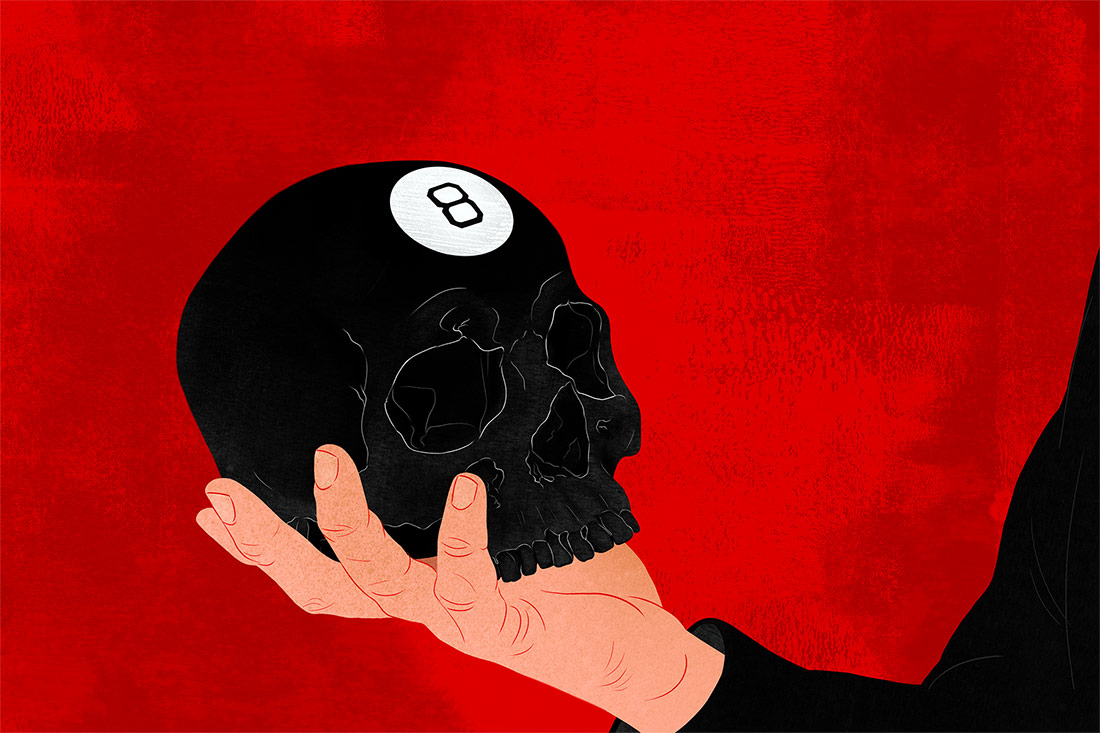The Heart of Paradox
I’m stuck in a conundrum. I’m caught in a catch 22. I’m dancing with Rumi at the heart of paradox, and I’m not sure how I feel about it.
Allow me to introduce myself: I am a nameless young actor. Nameless because my name has no weight to it. I have no street cred. In the relatively small world of Toronto theatre, I am a nobody.
I don’t lament this. My time will come, or it won’t. I am no different from the hundreds of other recent theatre school graduates living in Toronto—young, hungry,1 and working as a server.
Fear not—this isn’t an op-ed on The Struggle, nor am I here to enumerate the trials and tribulations of serving.2 As a nobody who would like to be a somebody,3 I am cheek to cheek with Rumi because I have examined the paths of “success” available to me and have discovered the paradox that lies therein: I am critical of established theatre institutions, yet crave the credibility that only those establishments can give.
As a teenager, the most common piece of advice I heard from veteran theatre actors was, “If you can do something else, do it.” Eager theatre beaver that I was, this always struck me as a tad cynical. “I can do plenty of things, but this is what I want to do,” went my unspoken retort. I would nod solemnly to let them know that I had truly, deeply heard them, and had considered all my options, but was a real serious kid and the fervour of my love was not to be denied.
This is the tragedy of giving such advice: it falls on ears too young and too deaf and too passionate to really hear it. The best advice I heard came from Eric Peterson, who told me, “It’s a hell of a life. But if you’ve got to do it, you’ve got to do it.” At long last, someone who wasn’t hell bent on deterring me from my path! In retrospect, his nuanced advice served as both warning and validation.
“It’s a hell of a life.” Six months out of theatre school, you start to understand just a fraction of the truth of that statement. You’re attending your umpteenth audition for a small role on a very uninspiring television show that you’re probably not going to get, and finding yourself spending more time serving than acting, and wondering when you are going to “make it,” but knowing in your heart of hearts with a horrible sinking feeling that there is no “making it,”4 other than Hollywood-type stuff, which you don’t really want to do anyway, because you crave work with more meaning than that… but how do you even make work that “means” anything, and, like, what is objective “meaning” anyway, and, more importantly, when are you going to be able to quit your serving job? It’s okay though. You are, after all, probably still pretty young, likely with no dependents, and you can still afford (mentally and psychologically) to live in a place that is rather uninspiring, because you can’t afford (monetarily) to live in anything better. But it’s still “all good.” If you are like me, and this is your situation, then I suspect that we won’t actually understand the real and horrible truth of “It’s a hell of a life” until we are in our mid-thirties and maybe having kids, or maybe just wanting to settle down and stop worrying about money so much. That may be when the regret really starts to kick in, and we find ourselves telling fresh-faced teenagers, “If you can do something else, do it.”
-
- 1. Hungry for theatre. Good theatre. Great theatre. Also sometimes actually hungry.
-
- 2. But that might be a hilariously fantastic op-ed.
-
- 3. I don’t like this terminology, “somebody” and “nobody.” Of course, everybody is a somebody. But the terminology of greasy careerism is the most useful for this article.
-
- 4. Which can actually be like a real alleviating life truth when readily embraced. (Obviously.)









Comments